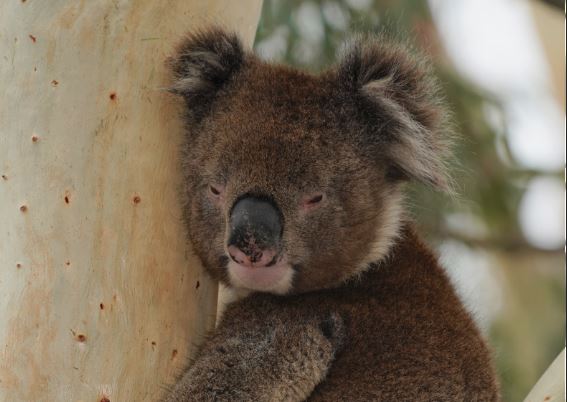
Visitors to Kangaroo Island will be invited to take part in a major Federal Government-funded Citizen Science project led by Flinders University experts.
As part of a comprehensive census of wildlife and bushland recovery after last summer’s major bushfires swept across the important South Australian environment and landscapes, the public will be called to help count koala, sea lion and platypus numbers, to look for fossils and dune movement, and for the spread of pollinator insects and the plant pathogen phytophthora – among other activities.
Flinders University experts are taking the lead in the Citizen Science ‘Passport to Recovery’ project which aims to support a number of projects to enhance the public’s understanding of climate change and the threats to biodiversity.
The $482,745 Flinders University’s Passport to Recovery program will focus on recovery from bushfire on Kangaroo Island and building understanding of recovery from disaster and the impacts of environmental change. The program features culturally significant citizen science activities to engage tourists and locals in the science of recovery, incorporating relevant Indigenous cultural knowledge (Caring for Country).
The Passport to Recovery Citizen Science projects will focus on citizens working with scientists, industry and government to monitor and evaluate restoration and recovery while supporting tourism, enhancing the local economy and promoting policy change. Development of an app and website, an invitation to join the project when coming to Kangaroo Island by air or the SeaLink ferry, and a new Indigenous Yarning Trail map are planned to be incorporated in the toolbox of projects.
The projects will be led by Professor of Biodiversity and Conservation Karen Burke da Silva and College of Science and Engineering researchers Associate Professor Kirstin Ross, Professor Corey Bradshaw, Dr Ryan Baring and Dr Julian Beaman, and Dr Gareth Butler, Senior Lecturer in Tourism in the College of Humanities, Arts and Social Sciences.
“Once the app and website are ‘up’, we will be promoting the projects across the Flinders University community so everyone will have a chance to help in this exciting new project,” says Associate Professor Ross.
“Students and staff from Flinders will all be able to get involved later in the year.”
Announcing the latest federal government Citizen Science Round 2 grants, the Minister for Industry, Science and Technology Mr Christian Porter says the $4 million round of funding for nine projects continues “the Government’s commitment to making science relevant and accessible to people of all ages across the nation.”
As well as complementing support for National Science Week in August, the projects also provide opportunities for social connection and developing new skills.
The funding is being provided over four years and is supported under the Inspiring Australia – Science Engagement Programme (IA-SEP). Competitive grants of between $150,000 and $500,000 were allocated to successful projects that support community involvement and participation in scientific research.
The Citizen Science grant program involves the collection or transformation of data in four priority areas: disaster resilience and preparedness; environmental change; cyber security and artificial intelligence; and food and agribusiness. These all have practical applications of benefit to all Australians.

